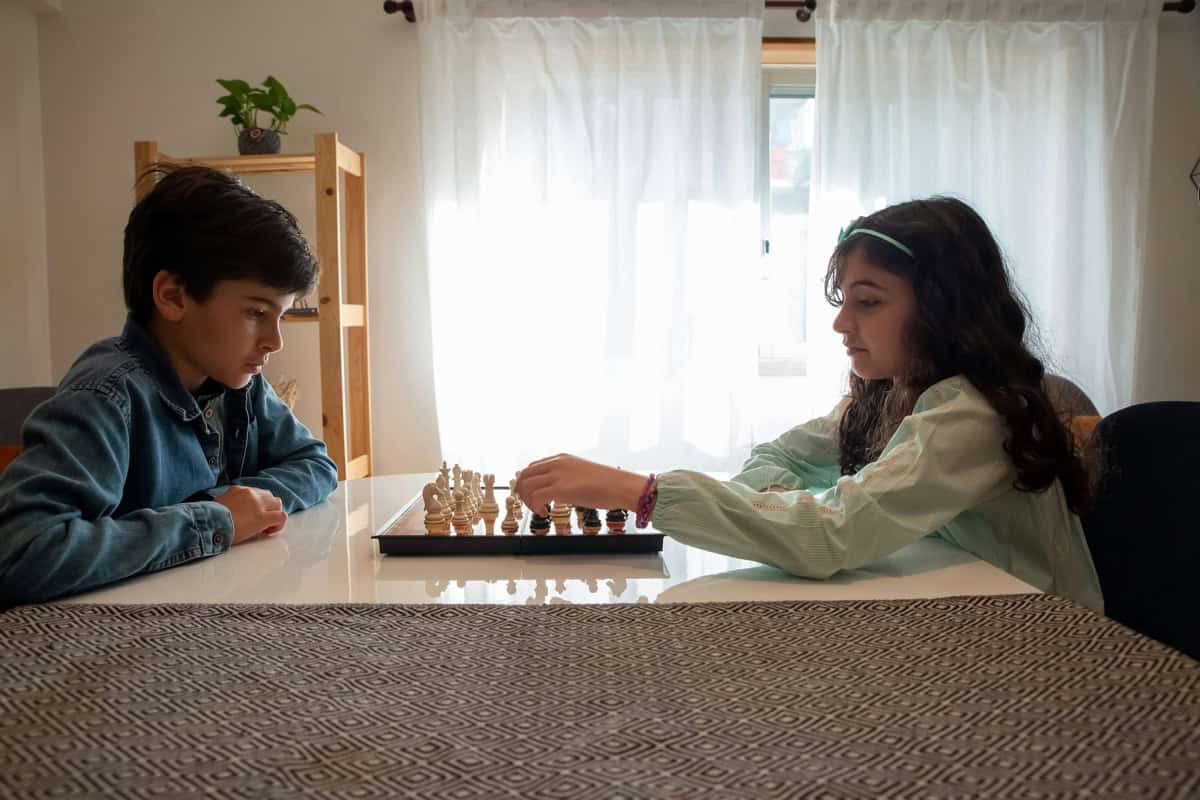
Sharon is a certified life coach and a mother of a gifted child. With expertise in coaching and personal development, she’s passionate about offering practical solutions that help families and individuals succeed.
Gifted kids and adults often have many interests and enjoy learning in their free time. They tend to get deeply involved in things that spark their curiosity or challenge their thinking.
Some like to build or invent, while others prefer reading, writing, or playing music. Hobbies can help them relax, express themselves, or dive into a topic they love.
These activities are not just fun. They often match how gifted minds work. Some hobbies are quiet and thoughtful, and others are active and creative. Each one gives gifted people a way to grow, focus, and enjoy their unique strengths.
In this article, we’ll explore the most common hobbies for gifted kids and adults. We’ll also share what makes these hobbies a good fit and how they support both learning and well-being
This list can help you find ideas that feel just right, whether you’re gifted yourself or raising a gifted child.
Top 10 Hobbies for Gifted Kids
1. Reading (All Levels & Genres)
Many gifted kids read early. They love learning, and reading books is one of the best ways to learn. The type of book varies from child to child. Some prefer fictional books, especially ones that are in the fantasy or science fiction genre. Other kids prefer textbooks and encyclopedias, where they can learn lots of facts.
Graphic novels and magazines also appeal to gifted readers, especially those who benefit from visual information. Audiobooks may be useful for auditory learners or children who prefer to absorb information while doing other activities.
Many libraries offer programs that support these interests, such as age-appropriate book clubs, reading challenges, and author events. These programs give gifted children a chance to connect with peers who also enjoy reading and to explore new genres in a structured but low-pressure setting.
2. Building with Toys
Building and construction play is a common hobby for gifted kids, especially those who like solving problems and thinking in 3D. Toys like LEGO sets, magnetic tiles, K’NEX, marble runs, and engineering kits let children explore how things fit together and how structures work.
Many gifted kids enjoy the challenge of figuring out how to design or improve a model. They often go beyond the basic instructions, creating their own complex systems or experimenting with alternative solutions.
This kind of play builds spatial awareness, critical thinking, and persistence. Related programs include after-school STEM clubs, maker spaces, LEGO robotics leagues, and weekend engineering workshops.
These settings let kids work on real-world design problems, either individually or in teams. Some kids also get interested in computer-aided design (CAD) or 3D printing as a next step,
3. Creative Writing & Storytelling
Gifted kids often have vivid imaginations and complex inner worlds, and creative writing gives them a powerful way to express those thoughts. Writing stories, poems, or even scripts allows them to channel their ideas into characters, plots, and settings, making abstract thoughts more concrete and easier to share.
They explore ideas through narrative, using fiction to work through emotions, questions, or observations about the world instead of explaining them directly.
Many gifted children also enjoy experimenting with language, structure, and style, and they often develop strong voices as young writers.
Encourage them to join school or community writing clubs, summer writing camps, and national contests like the Scholastic Art & Writing Awards. Some libraries and bookstores also host young author workshops or open mic nights, which give kids a chance to share their work and get feedback in a supportive setting
4. Puzzle Solving
Gifted kids are naturally drawn to activities that challenge their minds, and puzzles offer the kind of cognitive stimulation they enjoy most. Rubik’s Cube, sudoku, logic grid, jigsaw puzzle, or crossword puzzles allow them to stretch their reasoning skills and experiment with different problem-solving strategies.
Many gifted children enjoy the sense of focus and satisfaction that comes with cracking a tough puzzle, especially when it requires patience and pattern recognition. They also tend to appreciate puzzles that involve strategy or multi-step thinking.
You can support this interest by keeping a variety of puzzles at home, introducing new types regularly, and encouraging kids to explain their thinking as they solve them. You can also look for advanced puzzle books, logic apps, or printable brain teasers online if your child is looking for tougher challenges.
5. Art & Illustration
Not all gifted kids are drawn to writing or speaking to express themselves. Art becomes the primary language for sharing ideas, emotions, and imagination for these children.
Drawing, painting, and illustrating allow them to explore complex thoughts and feelings in ways that words often can’t. Some children create detailed characters and imaginary landscapes, while others focus on abstract forms that reflect mood or inner tension.
Artistic expression can also help gifted kids process their thoughts and decompress after intense intellectual activity.
You can support this hobby by providing access to a range of quality art supplies and encouraging exploration without judgment or pressure. Visiting museums, watching artist tutorials online, and reading books about different artistic styles is also a great idea. These help spark inspiration and help children find their voice.
Enrolling in local art classes or workshops also gives them structured opportunities to learn new techniques.
6. Music
Many gifted kids are drawn to music because it helps them express their feelings, stay motivated, and understand themselves better. Music also gives them a way to relax and focus.
They use singing, playing instruments, or making up their own songs, as a powerful outlet.
Parents can support this interest by playing different kinds of music at home, encouraging their child to try out instruments, and letting them explore music in their own way. Watching concerts, using music apps, or even recording their songs at home can also keep things fun and exciting.
Suppose the child wants to go further. Music lessons can help. However, it’s important to find a teacher who allows creativity, not just strict practice.
7. Science Kits & Experiments
Science experiments are a great way for gifted kids to learn by doing. These hands-on activities make learning fun and interactive, helping them see how science works in real life.
Experiments like baking soda volcanoes, invisible ink, and making slime are especially exciting because they can see the results instantly and understand how different materials react. These types of activities help build problem-solving skills and encourage kids to ask questions about the world around them.
You can support this interest by setting up simple science experiments at home, using common household items or buying easy-to-follow science kits. Encouraging children to try experiments on their own or come up with their own ideas can also spark their curiosity.
Visit science museums, watch educational science videos, and have them join local science clubs to give them more opportunities to explore their interests in a fun and educational way.
8. Learning Languages or Codes (e.g., Morse, ASL, foreign languages)
Some gifted kids love learning new languages, secret codes, or symbol systems. This interest lets them explore how words and meanings are put together and how people use language to share ideas.
They often enjoy spotting patterns, breaking things down, and comparing how different languages work. This might mean learning a second spoken language for some, while for others, it could be Morse code, sign language, or even made-up alphabets or number systems.
You can support this interest by offering language learning apps like Duolingo, books, or games. Watching shows or listening to songs in another language can also make it more fun.
Is your child into secret codes? You can give them code books or puzzles to solve, or even help them make their own code system.
Language clubs, online courses, or classes in school or the community are also helpful. This hobby builds strong thinking skills and can open up new ways for kids to connect with the world.
9. Board Games & Strategy Games
Board games are a great hobby for gifted kids because they mix fun with thinking. Many games involve planning, strategy, and making smart choices, which gifted kids often enjoy.
Games like chess, Go, and Settlers of Catan help them think ahead, solve problems, and stay focused.
Some games are competitive, while others, like Pandemic, are cooperative. Players work together to reach a goal in this game. These types of games help kids learn teamwork, patience, and how to handle winning or losing.
You can support them by playing games together as a family. Try out new games that match your child’s thinking level.
10. Roleplay & Imaginative Play
Many gifted kids are naturally drawn to roleplay and pretend play. These activities match their strong imaginations, deep emotions, and big ideas.
Roleplaying gives them a fun and creative way to express themselves. It lets them explore ideas freely without being limited by rules or real-world expectations.
Roleplay also helps gifted kids practice social skills. They can try out different roles, solve problems, and work with others in a safe and flexible setting
This can be especially helpful for kids who sometimes feel different from their peers or bored in typical activities. Parents can support this interest by encouraging dress-up play, providing props or costumes, or playing along with their child’s story ideas.
Tabletop roleplaying games like Dungeons & Dragons or story-building card games can be great for older kids, too. Theater classes, drama clubs, or creative writing can also give them more ways to bring their ideas to life.
Top 10 Hobbies for Gifted Adults
1. Reading & Researching Niche Topics
Gifted adults often maintain a deep love of reading, but their tastes tend to shift toward more complex and thought-provoking material. They are drawn to genres that challenge their thinking, like mysteries, psychological thrillers, and historical fiction.
These stories allow them to explore moral questions, hidden motives, and patterns in human behavior, often sparking deeper reflection or new ideas.
Gifted adults also often dive into research on niche topics that spark their curiosity. It could be about ancient civilizations, obscure philosophies, or how specific technologies work.
No matter what it is, they don’t stop at surface-level knowledge. They read books, academic articles, forums, and original sources to truly understand the topic.
Does this sound like you? Consider starting personal projects like writing blog posts, creating research summaries, or joining online groups where people discuss the same interests.It will give you a constant source of mental stimulation and a way to explore the kinds of questions that have always fascinated you.
2. Writing
A gifted adult’s mind is probably always full. It is full of ideas, questions, patterns, and observations. Writing gives them a place to put all of that.
They journal to sort through your thoughts, craft stories that reflect how you see the world, or even write long, thoughtful posts online. These give them a natural outlet for reflection and clarity.
You can stay engaged by setting aside time to write regularly, even if it’s just a few minutes a day. Try journaling for self-reflection, blogging about topics you care about, or experimenting with poetry or fiction.
Join a writing group or take part in online challenges like NaNoWriMo. Platforms like Substack, Medium, or Reddit offer places to share your work and connect with thoughtful readers.
3. Coding or Tech Projects
Programming, computer science, and engineering let gifted adults turn ideas into real tools. These fields offer both logic and creativity, making them a perfect fit for people who enjoy solving problems and building things that work.
A small script or app can save hours of time, solve everyday problems, or even help others. That kind of control and impact can be deeply satisfying.
You can engage with this hobby by starting small. Build simple automations, write basic code, or explore platforms like Scratch, Python, or Arduino.
Online courses and tutorials make it easy to learn at your own pace. Try joining coding forums, hackathons, or open-source projects to connect with others.
4. Music
Gifted adults often feel a strong connection to music. Some keep the passion they had as kids, while others discover it later.
What starts as singing along or playing songs by others can grow into writing original music and performing it. Music becomes a way to express emotion, think deeply, and create something meaningful.
You can stay engaged by picking up an instrument you’ve always wanted to learn or revisiting one you used to play. Use music software or apps to record and layer your tracks.
Explore songwriting, join local jam sessions, or take online lessons to build your skills. Home studios are easier to set up than ever, so you can create and produce music at your own pace.
5. Volunteering or Advocacy
Gifted adults often feel a strong sense of empathy and responsibility. They tend to notice problems others overlook and want to do something about them.
Volunteering, advocacy, and purpose-driven projects give them a way to turn values into action. These efforts aren’t just about helping but also about making real, lasting change.
You can engage by supporting causes that align with your beliefs, whether that’s environmental work, education, mental health, or social justice. Look for local volunteer groups, nonprofit organizations, or online communities where your skills can make a difference.
You might lead your own project, join a board, or use your writing, tech, or organizational skills to support a mission.
6. Philosophy, Psychology, or Self-Development
Gifted adults are often drawn to exploring life’s deeper questions. They don’t settle for simple answers. They want to understand the “why” behind human thoughts, feelings, and actions.
Topics like consciousness, morality, identity, and purpose naturally capture their attention. Their introspective nature pushes them to seek a deeper understanding of themselves and the world around them.
You can engage with these interests by reading books and articles, attending lectures or online courses. Also, join discussion groups that dive into philosophy, psychology, or self-development.
Take time to reflect and journal your thoughts or explore practices like meditation or mindfulness. Engage with podcasts, debates, or online forums to spark new ideas and provide perspectives that challenge your own.
7. Furniture Making or Woodworking
Many gifted adults enjoy woodworking because it offers a chance to create something real and tangible. It’s a hobby that combines thinking, planning, and hands-on work.
Building furniture, crafting small items, or working on larger projects lets them solve problems, express creativity, and stay focused on a single task.
You can engage with this hobby by starting with simple projects like a small shelf or table, gradually moving on to more complex pieces as your skills grow.
Are you new to woodworking? Consider taking a class or watching tutorials to learn the basics of tools, techniques, and safety. Also, joining local woodworking groups or online forums can connect you with other enthusiasts, offering support and ideas.
8. Astrophotography or Stargazing
Astrophotography and stargazing are perfect hobbies for gifted adults because they offer a mix of learning, beauty, and calm. Stargazing provides a peaceful way to slow down and reflect on bigger questions, helping you unwind while pondering the vastness of the universe.
It’s a way to connect with the world beyond and find moments of stillness.
You can dive into stargazing by getting a good telescope, downloading sky-gazing apps, or joining local astronomy groups to meet like-minded people.
Astrophotography adds a creative challenge by combining your love of science with the technical aspects of photography. Experimenting with camera settings and capturing stunning images of the night sky can be both relaxing and mentally stimulating.
These hobbies blend exploration with wonder, offering endless opportunities for discovery and reflection.
9. Podcasting or YouTube Content Creation
Podcasting and creating YouTube videos offer gifted adults a way to share ideas, explore personal interests, and connect with a wider audience. These platforms allow them to dive deep into topics they are passionate about, using both their analytical thinking and storytelling skills.
These platforms also allow them to work at their own pace, creating content that’s meaningful to you while engaging with others who share similar interests.
Do you want to give it a try? You can get started by choosing a topic you care deeply about, whether it’s technology, personal development, science, or creative arts.
Invest in basic equipment like a microphone or camera, and experiment with editing and recording. You can grow your audience through consistent uploads, engaging with listeners or viewers, and building a community as you gain confidence.
Podcasting and YouTube also provide a great opportunity to socialize and connect with people online, giving you both a creative outlet and a way to meet like-minded individuals.
10. Birdwatching
Birdwatching attracts gifted adults for many of the same reasons as stargazing. It combines quiet observation, attention to detail, and a deep appreciation for nature.
This hobby encourages patience and focus, while also satisfying a natural curiosity about the world. It allows gifted adults to spot patterns in behavior and movements, making it both mentally stimulating and relaxing.
You can pick up a field guide or use birdwatching apps to help you identify species and track their behaviors to get started. Visit local parks, nature reserves, or even your own backyard to observe birds in their natural habitats.
Join birdwatching groups or online communities to connect with others who share your passion.
Conclusion
Gifted people often look for more than just ways to pass the time. They want hobbies that feel meaningful, interesting, and challenging.
The lists above show some of the most common choices for both gifted kids and adults. While their interests may look different depending on age, the goal is often the same: to explore, create, and grow.
Whether it’s a young child building with LEGO or an adult diving into coding, these hobbies offer a chance to think deeply, express ideas, and enjoy time in a way that feels right. Try a few from the list and see which ones spark interest. You might be surprised by what sticks.






